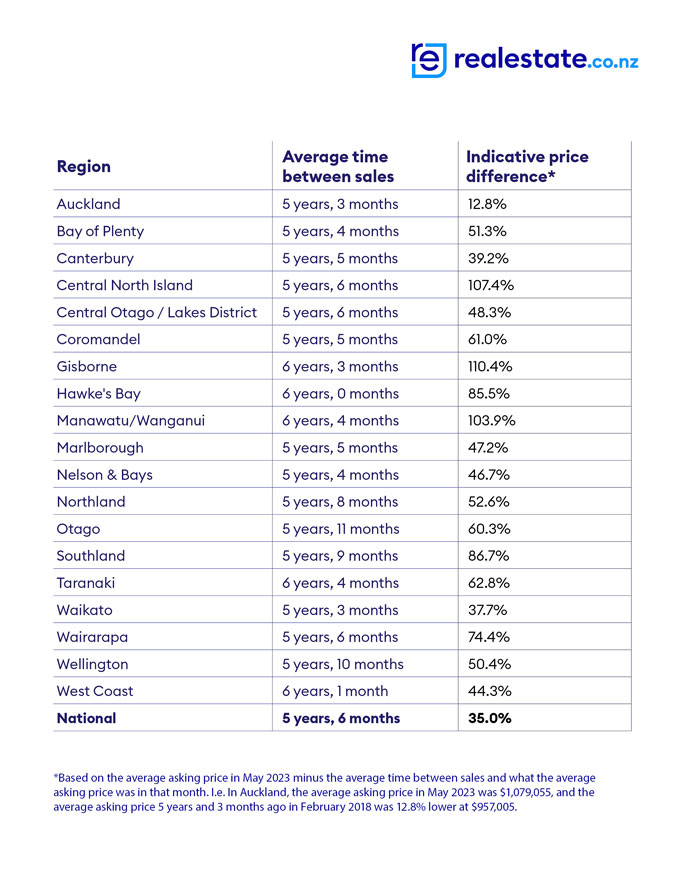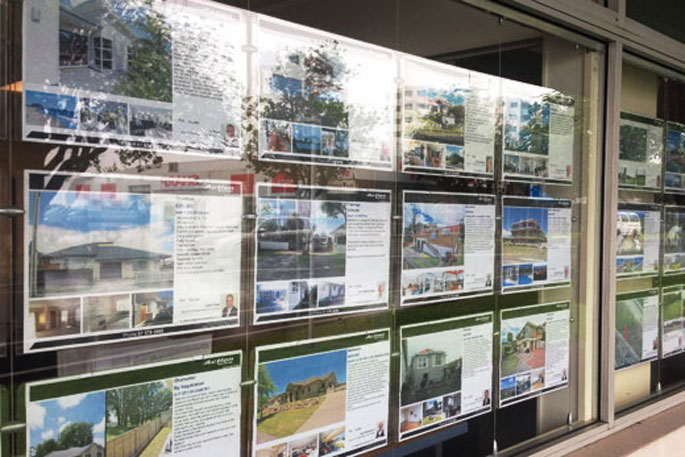People in Auckland and Waikato sell their homes more often than the rest of New Zealand.
This is according to the latest data from realestate.co.nz.
The data, which looks at the amount of time that property is held onto until it is re-sold, shows, on average, people held properties for the least time in Auckland and Waikato.
The time between sales for properties in both Auckland and Waikato was about five years and three months.
At the other end of the scale, Kiwis held onto their properties for the longest in Taranaki and Manawatu/Whanganui at around six years and four months.
Nationally, properties are sold every five years and six months on average.
"People choose to sell for many reasons. Whether they are looking for a lifestyle block, a low-maintenance townhouse, or more space to accommodate a new family member, property decisions are inexplicitly linked to lifestyle wants and needs,” says Vanessa Williams, spokesperson for realestate.co.nz.
The movers: Auckland, Waikato, Nelson & Bays, and Bay of Plenty
Whether it's the pace of the city, the pull of keeping up with the Joneses, or the appeal of various lifestyle changes that Auckland and Waikato offer, over the past 14 years, these two regions saw their properties change hands most often.
Vanessa says as two of our most populated regions, their size is likely a factor.
"These regions offer good employment opportunities while catering for lifestyle changes of all kinds, including for those looking for their second home or wanting to downsize into retirement. This could explain why properties are sold more often in these places."
Within the Auckland region, property owners in Franklin move on the fastest – every four years and 10 months on average.
In comparison, property in the Hauraki Golf Islands is held the longest at five years and 11 months. In Auckland City, people are holding their property for an average of five years and six months.
In the Waikato region, it was the Waikato and Waipa districts where properties sold the most often (four years and 11 months and five years and one month, respectively).
South Waikato, however, saw the slowest time between resale at five years and five months, just shy of the national average.
Other regions where property moved more quickly than the national average were Nelson and Bays (five years and four months), Bay of Plenty (five years and four months), Canterbury (five years and five months), Coromandel (five years and five months), and Marlborough (five years and five months).
Vanessa suggests that Kiwis in bigger regions might find themselves buying sooner than anticipated because of the greater range of properties to choose from:
"Believe it or not, research shows around 20% of Kiwis have 'accidentally bought a house'. Perhaps they've wandered through an open home and loved the property so much that they've made an offer, or they've found themselves in an auction room where a house was selling for less than expected, so decided to bid."
"I suspect that these spontaneous purchases happen more often in regions with plenty of choice – like Auckland, Waikato, Nelson & Bays and Bay of Plenty," says Vanessa.
The research, conducted by Horizon in April 2021, surveyed a stratified sample of 1224 respondents, weighted to represent the New Zealand population aged 18 or more, and found that of the 20 per cent that had unexpectedly bought a house, six per cent have done so in the last 12 months.
But what about the financial gains? Does it pay to stay, or should you go?
"Long-term, average asking prices typically go up, so, in theory, most properties will be selling for more five or six years later. But it depends on which region as to how much," says Vanessa.
About five years and three months ago, in February 2018, the average asking price in Auckland was $957,005; last month it was 12.8 per cent higher at $1,079,055.
In Waikato, this increase was more substantial at 37.7 per cent, from $565,352 in February 2018 to $778,526 in May 2023.
'Holding for longer in some cases will mean bigger gains, but many factors can impact this, including market conditions, economic factors, legislative changes, your region, and demand in your area.
"Auckland is an interesting case here. Aucklanders have been the fastest to move on, but of all regions, they have seen the smallest financial gain over the last five and a half years [our national average time between resale]. Up just 13.7% since November 2017."
Of the regions where properties sold less often than the national average, Gisborne saw the biggest potential price gains. In February 2017, the region's average asking price was $320,336.
Last month, it was more than double this at $673,949 (up 110.4 per cent).
Vanessa says Gisborne has seen significant price growth over the last five years. The region hit a 16-year record high in February 2023 of $747,676.
Ultimately, Vanessa urges Kiwis to buy based on their circumstances, not what they hope the market might do.

More than a million New Zealand homes have never been sold
NZ may be a nation of property fanatics, but well over a million homes have never gone up for sale on realestate.co.nz, despite the site listing 870,242 individual properties since records began 16 years ago.
"Statistics New Zealand data from September 2022 estimates there are just over 2 million private dwellings in New Zealand, meaning there are more than a million homes that have been in the same hands since realestate.co.nz records began.”
Vanessa notes that Kiwis tend to have a strong connection to property and place.
"It will be interesting to look back again in another decade or two and see, as lifestyles change, if we see a similar percentage of homes staying with the same owners."



0 comments
Leave a Comment
You must be logged in to make a comment.